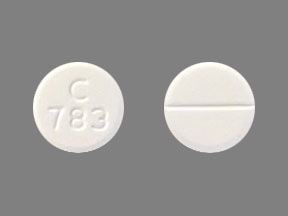
Prednisone Coupons & Savings Card – Discount Prices from $5.12
Generic for: Prednisone intensol, Rayos
My prescription
Edit
50MG, Prednisone (10 Tablets)
Select pharmacy

CVS
$19.54
COUPON PRICE
Walmart
$5.12
COUPON PRICE
Albertsons
$7.04
COUPON PRICE
Walgreens
$7.04
COUPON PRICEPrednisone savings card
Show this card to your pharmacist
Walmart
$5.12
BIN
ID
PCN
GRP
019876
LH7BE71EF2
CHIPPO
LHX
Powered by
More prescriptions for ulcerative colitis
More prescriptions for ulcerative colitis
Price history for Rayos (brand) & Prednisone (generic)
10 Tablets, 50MG
Average retail price for Rayos
Average retail price for Prednisone
Average SaveHealth price for Prednisone
Our price history data is based on aggregated prescription data collected from participating pharmacies in America. Our prescription data updates daily to reflect the latest price changes. If you notice a missing data point, it means there wasn't sufficient data available to generate a monetary value for that date.
We analyzed Prednisone prices for (50MG, 10 Tablets) over the last 12 months. The average retail price was $20.82, while the average price using the SaveHealth discount card was $14.95. That's a savings of approximately 28.19% when using our Prednisone coupon.
Compared to the generic version, Rayos had an average price of $3392.32 over the same time period. With the SaveHealth savings card, Prednisone is 99.56% cheaper on average than Rayos.
*Retail prices are based on pharmacy claims data, and may not be accurate when we don't have enough claims.
Prednisone Intensol (Prednisone) dosage forms
Dosage Quantity Price from Per unit 1MG 30 Tablets $3.90 $0.13 1MG 60 Tablets $5.29 $0.09 1MG 90 Tablets $13.19 $0.15 1MG 120 Tablets $14.58 $0.12 1MG 360 Tablets $30.33 $0.08 2.5MG 30 Tablets $5.23 $0.17 2.5MG 60 Tablets $7.97 $0.13 2.5MG 90 Tablets $17.20 $0.19 2.5MG 180 Tablets $27.97 $0.15 2.5MG 270 Tablets $34.13 $0.13
| Dosage | Quantity | Price from | Per unit |
|---|---|---|---|
| 1MG | 30 Tablets | $3.90 | $0.13 |
| 1MG | 60 Tablets | $5.29 | $0.09 |
| 1MG | 90 Tablets | $13.19 | $0.15 |
| 1MG | 120 Tablets | $14.58 | $0.12 |
| 1MG | 360 Tablets | $30.33 | $0.08 |
| 2.5MG | 30 Tablets | $5.23 | $0.17 |
| 2.5MG | 60 Tablets | $7.97 | $0.13 |
| 2.5MG | 90 Tablets | $17.20 | $0.19 |
| 2.5MG | 180 Tablets | $27.97 | $0.15 |
| 2.5MG | 270 Tablets | $34.13 | $0.13 |
| 5MG | 21 Tablets | $3.51 | $0.17 |
| 5MG | 30 Tablets | $3.95 | $0.13 |
| 5MG | 60 Tablets | $5.40 | $0.09 |
| 5MG | 90 Tablets | $13.35 | $0.15 |
| 5MG | 180 Tablets | $21.78 | $0.12 |
| 10MG | 5 Tablets | $2.79 | $0.56 |
| 10MG | 10 Tablets | $3.08 | $0.31 |
| 10MG | 18 Tablets | $3.55 | $0.20 |
| 10MG | 21 Tablets | $3.73 | $0.18 |
| 10MG | 30 Tablets | $4.25 | $0.14 |
| 20MG | 5 Tablets | $3.04 | $0.61 |
| 20MG | 6 Tablets | $3.15 | $0.53 |
| 20MG | 10 Tablets | $3.58 | $0.36 |
| 20MG | 14 Tablets | $4.02 | $0.29 |
| 20MG | 15 Tablets | $4.12 | $0.28 |
| 50MG | 10 Tablets | $5.12 | $0.51 |
| 50MG | 3 Tablets | $3.29 | $1.10 |
| 50MG | 4 Tablets | $3.55 | $0.89 |
| 50MG | 5 Tablets | $3.81 | $0.76 |
| 50MG | 7 Tablets | $4.34 | $0.62 |
